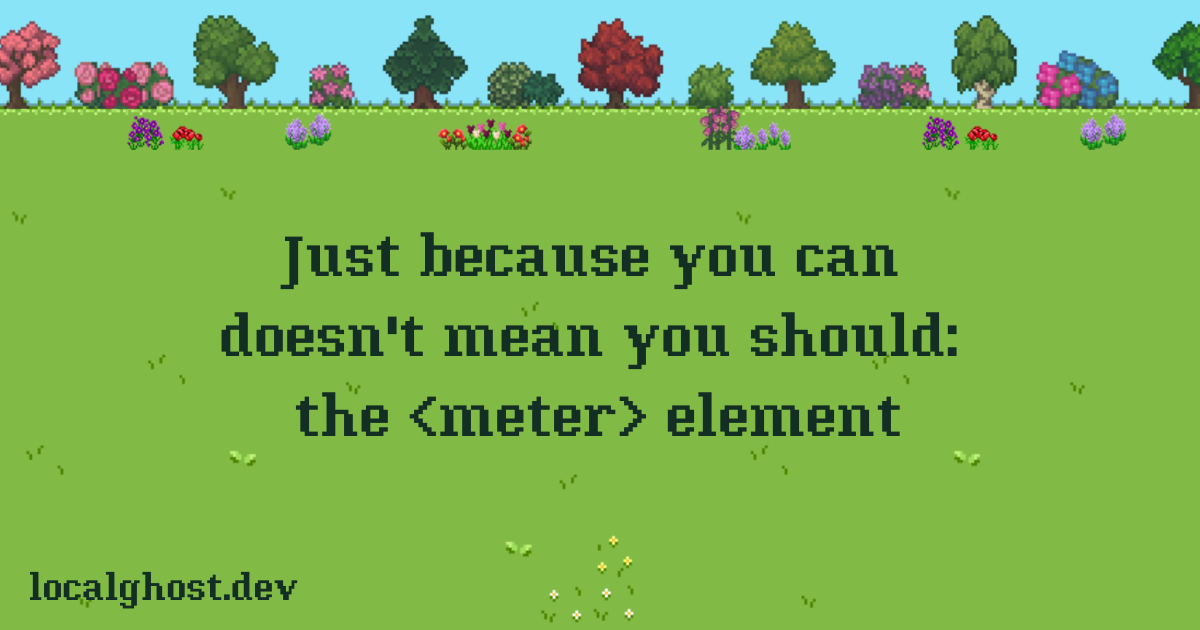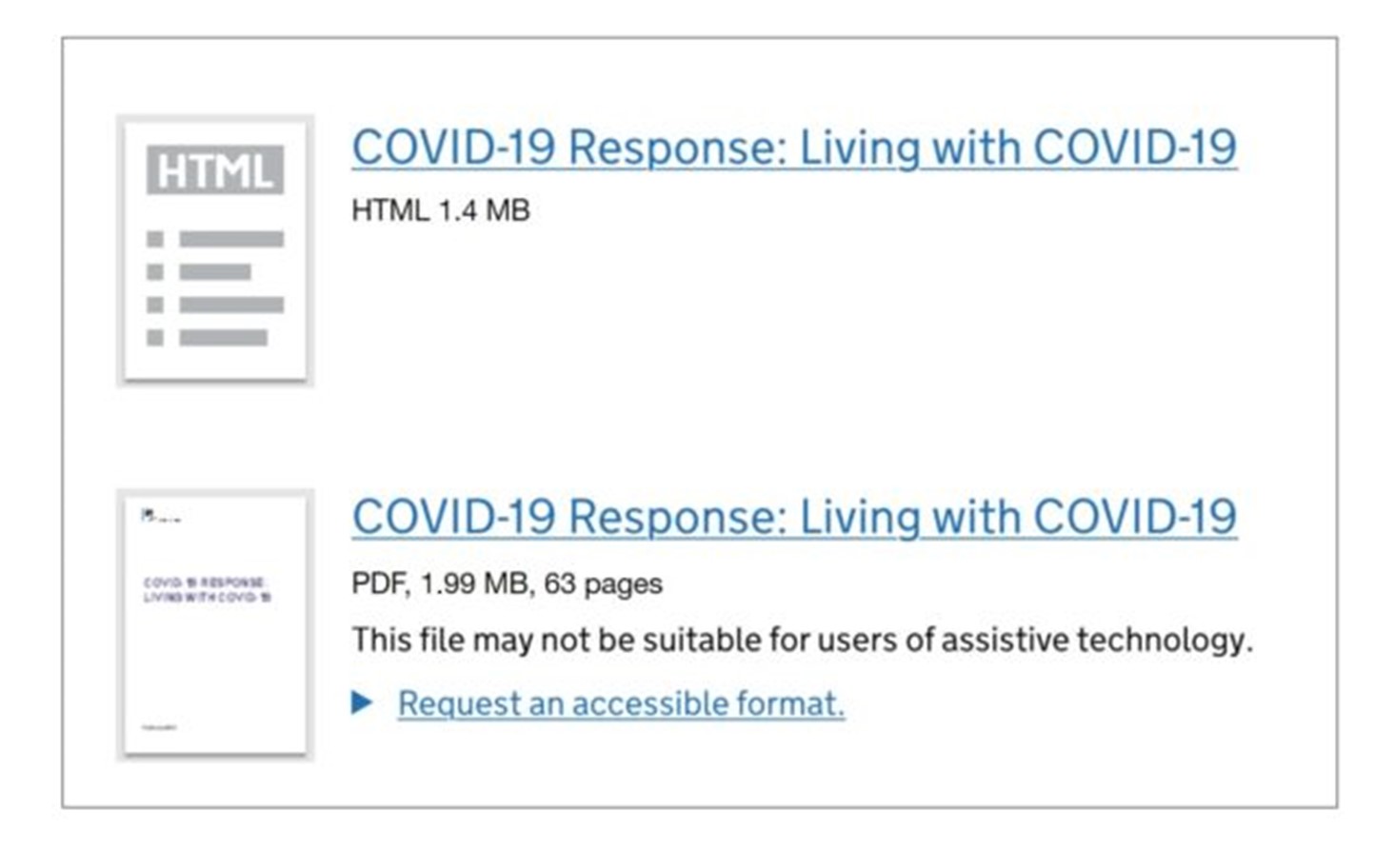bugsmith
- 28 Posts
- 52 Comments

 1·2 months ago
1·2 months agoTotally agree. Like most “rules”, it just needs treating with nuance and context.

 2·4 months ago
2·4 months agoI can totally see how it could be read like that!

 3·4 months ago
3·4 months agoFive-a-side is a specific format of football (soccer), aimed at more casual play with a much lower bar to skill level. Outside of five-a-side leagues (which do exist), it’s rarely played with fixed teams and often ran in a more “pick up group” fashion.

 19·4 months ago
19·4 months agoFive-a-side football (soccer). I’m not a sporty person, but started going with a local group a few years ago and have reaped the benefits of doing some intensive team exercise once per week. I go with a bunch of guys way older than I am, and it’s amazing how fit and healthy they are compared to the average person I meet of their age. I certainly plan to keep this up so long an injury doesn’t prevent me.

 17·5 months ago
17·5 months agoI really admire her after seeing this. She is so dialled in to what’s going on in her working area, and she doesn’t get flustered when probed with follow-up questions. Regardless of party, we could do with more people like her running and being elected as MPs - but I imagine she wouldn’t even consider it.
You know, I wish I could enjoy IRC - or chatrooms in general. But I just struggle with them. Forums and their ilk, I get. I check in on them and see what’s been posted since I last visited, and reply to anything that motivates me to do so. Perhaps I’ll even throw a post up myself once in a while.
But with IRC, Matrix, Discord, etc, I just feel like I only ever enter in the middle of an existing conversation. It’s fine on very small rooms where it’s almost analagous to a forum because there’s little enough conversation going on that it remains mostly asynchronous. But larger chatrooms are just a wall of flowing conversation that I struggle to keep up with, or find an entry point.
Anyway - to answer the actual question, I use something called “The Lounge” which I host on my VPS. I like it because it remains online even when I am not, so I can atleast view some of the history of any conversation I do stumble across when I go on IRC. I typically just use the web client that comes with it.
I really like Nushell. I would not run it as a daily driver currently, as it mostly doesn’t win me over from Fish, feature-wise, but I love having it available for anything CLI date pipeline work I need to do.
Love this. Always interesting to see novel ways of querying data in the terminal, and I agree that jq’s syntax is difficult to remember.
I actually prefer nu(shell) for this though. On the lobste.rs thread for this blog, a user shared this:
| get license.key -i | uniq --count | rename license This outputs the following: ╭───┬──────────────┬───────╮ │ # │ license │ count │ ├───┼──────────────┼───────┤ │ 0 │ bsd-3-clause │ 23 │ │ 1 │ apache-2.0 │ 5 │ │ 2 │ │ 2 │ ╰───┴──────────────┴───────╯
Thanks. I didn’t know about these advanced libraries, and had not heard of C++ modules either. Appreciate the explanation.
I don’t code in C++ (although I’m somewhat familiar with the syntax). My understanding is the header files should only contain prototypes / signatures, not actual implementations. But that doesn’t seem to be the case here. Have I misunderstood, or is that part of the joke?

 7·8 months ago
7·8 months agoYes, I can see cases where this might be valid. For example, if you wanted to be some kind of SAP administrator / programmer (a paid-only enterprise management software), nobody would hire you for such a role without having some experience with that product. Same for something like Salesforce.
I like Konsole.
It comes with KDE, supports tabs, themes, and loads very fast.
I don’t really need more from a terminal than that. When I, rarely, need more advanced features like window splitting and session management I also use Zellij (previously I used tmux).
Goodness, what a choice to make. They are both excellent, and you should of course read both. Personally, I would start with Hyperion.

 241·9 months ago
241·9 months agoA seemingly unpopular opinion, but Christian Bale’s Batman is my favourite live action version of the character.

 24·10 months ago
24·10 months agoThe same reason a lot of companies support a community edition. It means that people can use, learn and become experienced with the product without forking over a tonne of money.
This results in a larger number of developers, add-ons and community surrounding the product.
This makes it a more appealing product for companies looking to build a business using it.
It’s the same reason you can use AWS for free, get some JetBrains products for free and often find community editions for similar products to Magento.

 7·10 months ago
7·10 months agoMy district council has collected small electrical items for asong as I can remember. I was surprised to find out that not all councils do this.
As much as I think it’s a good thing for councils to have control over their local budgets (so long as they’re funded adequately…), I think it’s a poor system to let councils take on individual recycling contracts. The buying power alone should make a unified contract more economical. It’s mad that moving from one town to another can put you into a council that offers a poorer service, likely for a similar cost (if comparing neighbouring councils).

 17·11 months ago
17·11 months agoYes. I get the idea, because federating with them is the “negative” option, but honestly it’s just confusing and overly opinionated for an infographic.

 321·11 months ago
321·11 months agoThey’re not really blaming capitalism for anything though? They’re just explaining how it works, and they’re right. In a market driven economy, you are paid for having a skill or some knowledge based on the demand of that skill or knowledge and nothing else. In the same way as the quality of your house has little bearing on it’s value when compared to it’s location. Not a criticism of capitalism.



















She was 89 and no doubt lead a truly fulfilling life, and so I think objectively it’s not a sad passing - she had a truly remarkable life and long life.
That said, she was a significant part of my childhood, and always on the television in the various households I’ve lived in for one show or another. It feels like losing a beloved grandmother, and I’m devastated. RIP Maggie.